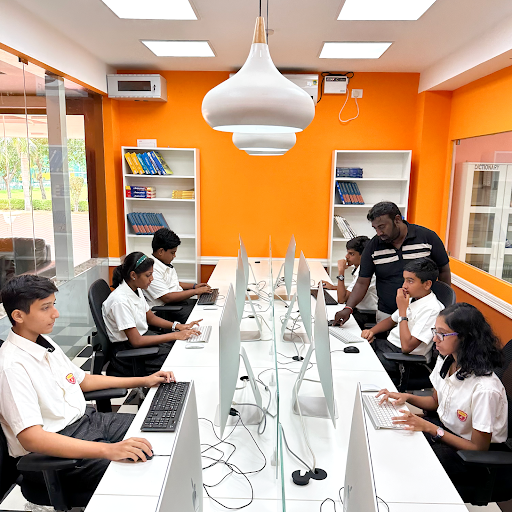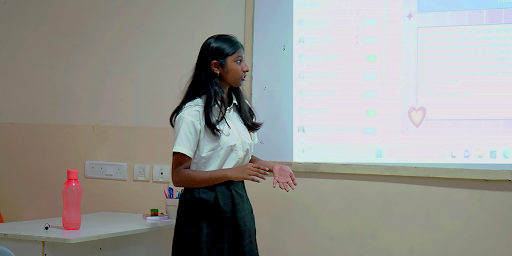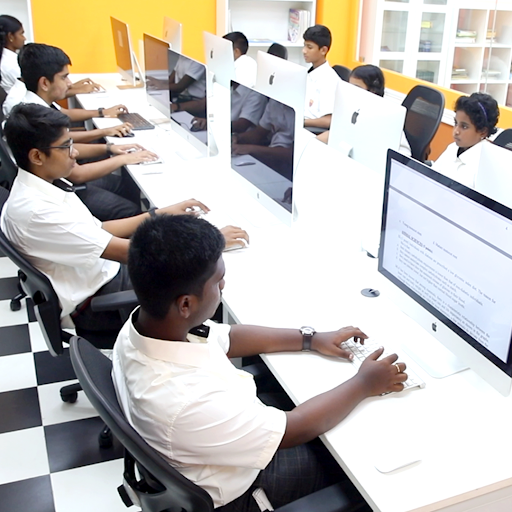IB Assessment Strategies: Going Beyond Traditional Testing
The International Baccalaureate (IB) assessment strategies transcend conventional testing methods, embracing a holistic approach to evaluating students’ progress, skills, and personal growth. Across the Early Years Programme (EYP), Primary Years Programme (PYP), Middle Years Programme (MYP), and Diploma Programme (DP), IB employs diverse assessment techniques that empower students to become lifelong learners. Let’s delve into the distinctive assessment methods in each of these stages at IB Schools in Chennai.
Assessment for Early Years Programme (EYP) and Primary Years Programme (PYP):
In the EYP and PYP, the focus is on nurturing inquiry, curiosity, and comprehensive development. Assessment is an ongoing process, involving teachers, students, and even parents. It incorporates various techniques:
Observation and Documentation: Teachers closely observe students’ interactions, behavior, and progress. These observations are documented to gain insights into each child’s development.
Portfolios: Portfolios serve as a repository of students’ work, reflections, and accomplishments. They provide a comprehensive view of a student’s growth over time.
Self-Assessment: Encouraging students to assess their own work promotes metacognition and self-awareness. It helps them recognize strengths and areas for improvement.
Teacher-Student Conferences: One-on-one discussions between teachers and students facilitate personalized feedback and goal setting.
Assessment in the EYP and PYP encourages a proactive, reflective, and holistic approach to learning. It supports students in understanding their progress and areas of development.
Assessment for Middle Years Programme (MYP):
The MYP introduces academic rigor while nurturing personal and interpersonal development. MYP assessment is multifaceted and aligns with the IB’s learner profile attributes:
Criterion-Referenced Assessment: Assessment is based on task-specific criteria, focusing on students’ understanding and application of concepts.
eAssessment: This innovative approach combines on-screen examinations with coursework components. It allows students to demonstrate their skills in varied formats.
Projects and Investigations: MYP emphasizes inquiry-based learning. Students engage in personal projects and investigations, developing research, communication, and critical thinking skills.
Collaborative Assessment: Group projects encourage teamwork, communication, and the sharing of diverse perspectives.
Assessment for Diploma Programme (DP):
The DP’s comprehensive assessment aims to prepare students for higher education and beyond. It comprises internal and external assessment methods:
Internal Assessments: These are teacher-assessed assignments, projects, and presentations that encourage in-depth exploration of subjects.
External Assessments: Terminal exams evaluate students’ understanding of the curriculum and their ability to synthesize information.
Comparative Assessment Table:
| Assessment Level | Assessment Approach | Emphasis | Techniques |
| EYP and PYP | Ongoing, involving teachers, students, parents | Inquiry, reflection, comprehensive growth | Observation, portfolios, self-assessment |
| MYP | Criterion-referenced, eAssessment, projects | Rigor, inquiry, skill development | Exams, projects, teamwork |
| DP | Internal and external assessments | College readiness, in-depth exploration | Assignments, exams, projects |
IB’s assessment strategies reflect its commitment to nurturing well-rounded individuals who excel academically and contribute positively to society. By going beyond traditional testing, IB paves the way for holistic development and lifelong learning.
Gateway IB Continuum School:
At Gateway IB Continuum School, the best IB school in Chennai, assessment strategies align with the IB philosophy. As one of the notable IB schools in Chennai, Gateway focuses on nurturing students’ holistic development through a range of assessment methods. The school’s educators encourage students to think critically, communicate effectively and apply knowledge in real-world contexts. By going beyond traditional testing, Gateway IB Continuum School prepares students for success in a dynamic and interconnected global landscape.
Conclusion:
IB assessment strategies are rooted in the belief that assessment should mirror authentic learning experiences. By prioritizing comprehensive evaluation methods such as internal assessment, extended essay, TOK presentations and CAS reflections, the IB curriculum prepares students to be lifelong learners, global citizens, critical thinkers and communicators. Through an approach that goes beyond traditional testing, IB assessment strategies empower students to excel academically and thrive in an ever-evolving world.





